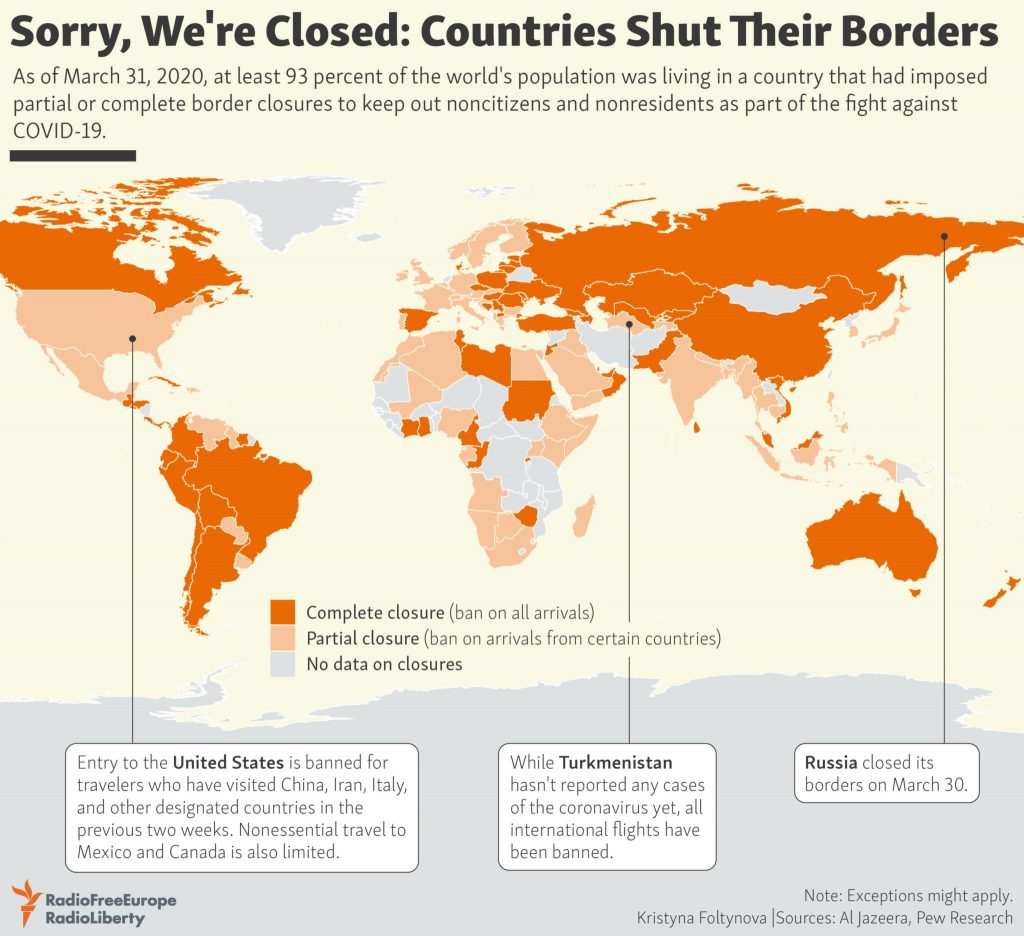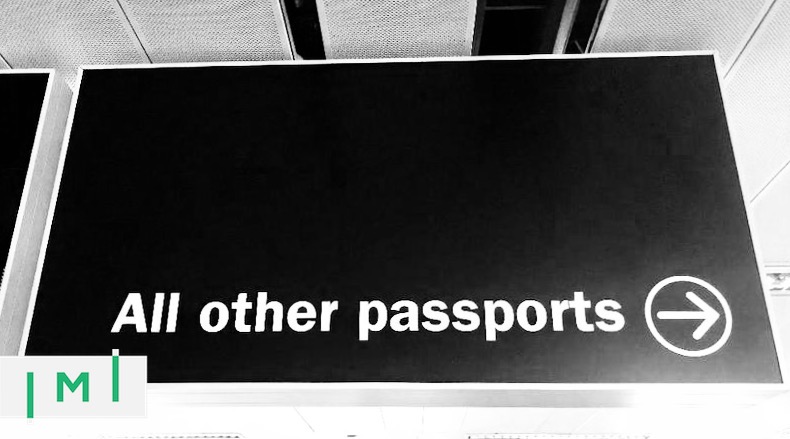A Tale of Two Citizens: Virtual vs. Functional Freedom of Movement
Can we expect a drop in demand for Caribbean programmes? Wayne Hempson-Putt of Citizenship Partners believes so – and especially among expats living in GCC countries.
An audio version of this article is available in the IMI Club Members’ Lounge
For years, HNWIs’ choice of either second residency or citizenship was informed by whether they needed visa-free travel (increased global mobility), or a Plan B destination in which they could settle if the situation in their native jurisdictions were to deteriorate suddenly.
For the first category of investor, the number of visa-free destinations a passport could offer was one of the biggest considerations, while residency applicants would be more inclined to consider the merits and viability of the country they’re investing in as a second home.
Yet in most people’s minds, any potential risk or threat – whether it be social, economic, political, or health-related – would be localized, or possibly regional, at worst, making a bolt-hole destination abroad very appealing.
The astonishingly swift spread of the Coronavirus pandemic has turned this kind of thinking on its head.
See also: Where Will Investment Migration Be When the Virus-Dust Settles?
Today, with over 3 billion people either in lockdown or facing severe travel restrictions, not even a second passport can unlock freedom of movement. In the short term, the current travel bans make many investment passports obtained purely for visa-free travel power effectively worthless.
The Caribbean and South Pacific CIPs, in particular, can be thought of in this respect as “virtual” citizenship programmes; in most instances, applications are made based on government donations, and many applicants never even travel to these countries to complete their citizenship applications, let alone to live there.
A second drawback of choosing to obtain citizenship in a tiny, far-flung country is that their international consular support services for citizens can be very limited, if not non-existent. Vanuatu’s consular services, for example, will be far less accessible than those of countries like the USA, Montenegro, Turkey, or any of the Schengen countries.
See also: Investment Migration in the Post Visa-Free Travel World
In the above respect, the latter residency and citizenship programmes of these countries can be considered functional programmes.
In the pre-COVID epoch, the general trend was that a large percentage of business travelers and their families would opt to acquire the cheapest CBI passport with the highest number of visa-free waiver agreements.
These passport programmes opened up visa-free travel to the UK, Schengen, larges swathes of Asia, and Russia, thus allowing these new (mostly Caribbean) passport holders to travel freely for business and pleasure. The largest uptake of such programmes outside of China came from the Middle East, Africa, Southeast Asia, and Russia, with a significant percentage of applicants being expats of Gulf countries such as the UAE, Qatar, Saudi Arabia, and Kuwait.
The big question is: “How useful are ‘virtual’ passports now?”
The most affordable CBI passports are from the Caribbean and Vanuatu. Before COVID-19, they were perfect and fit for purpose, especially for expats, generally providing visa-free travel to over 120 countries worldwide.
Today, however, expats residing in countries other than their native jurisdictions and traveling on investment passports experience major challenges stemming from travel bans and border closures.

A tale of two citizens
To illustrate how slightly different choices in the pre-COVID era would have led to starkly different outcomes in the presence, consider the following hypothetical scenarios:
Arif, an Iranian national residing in Kuwait needs to do business in Europe frequently. He obtained a Dominica passport and has been enjoying visa-free travel since. His family is permanently living in Kuwait. Due to the pandemic, Kuwait closed its airport to all but returning Kuwaiti citizens. Being a Kuwait resident, he gets stranded in Germany, unable to come home, and having to wait out the lockdown in Germany – at significant personal cost.
The impact of the virus in Iran is severe, so going back home is not an option. Flying to Dominica would take over 50 hours, many layovers, and would be very expensive (say $8,000). Moreover, the US is not accepting transit flights and, besides that, he does not own property in Dominica and has absolutely no support network there. (He didn’t even visit Dominica for his application.)
He now regrets going for a cheaper option and not having given due consideration to aspects such as consular support, travel connectivity during lockdowns and second home viability, in addition to the number of visa-free destinations offered by his second passport.
By contrast:
Veejay, an Indian national (Overseas Citizen of India, or OCI) and his family acquired EU citizenship via Cyprus in 2017 by purchasing a luxury beachside villa. In 2019 Veejay exchanged his Indian passport for an OCI travel document.
He was confident that his new EU citizenship provided his family with sufficient travel privileges, an excellent second home country, and accessible consular support should they ever require it.
Veejay and his family are based in Dubai and he frequently flies to the UK, Europe, and the US on business. His family spends a month or two in either France or Cyprus each year.
His EU passport has made international travel very simple and his status as an EU citizen has enabled his family to stay in Europe for as long as they wish. They often use their beach villa in Cyprus for short escapes, given its central location and regular air connectivity.
See also: Will The Covid/Economic Crisis Make RCBI Real Estate More Attractive?
Veejay was visiting London for business when the UAE closed its airports to all but returning Emirati citizens. His family is safe in the UAE. After consultation with his wife and the Cypriot Embassy, he decides that the family can reunite in Cyprus and sit out the pandemic storm in their beach villa.
The British Embassy has offered, as is the norm, to provide consular assistance to Cypriots in the UAE, and have even arranged for a repatriation flight for his family. He can wait in London for their arrival, and then the family will, as full Cypriot Citizens, fly to Larnaca Airport and onwards to their second home.
Back to the lockdowns: What happens next?
Each nation across the globe is employing a different approach to fighting the Coronavirus. While Sweden is trusting its citizens to be responsible and isn’t imposing significant restrictions, the UAE, Saudi Arabia, and Qatar have shut down industry, closed airports and borders, and are prohibiting all non-citizens and resident expats outside of the country from re-entering.
While these restrictions will eventually be lifted, a vaccine for the virus is at least 12 to 18 months away – and it certainly won’t be widely available upon launch. For the next two years, we can look forward to travel bans and lockdowns being lifted and re-imposed as infections flare up or secondary reinfections take hold – and especially in Middle Eastern countries.
In Europe, in contrast, both citizens and permanent residents are able to re-enter their country of residence, while tourists and business travelers are barred from entry.
The marooned and the rescued
If you are stuck outside your country of secondary residence due to a restriction that allows only citizens to return home (i.e. GCC countries), your Caribbean passport may well leave you stranded.
In contrast, holding EU residency or citizenship would mean that you and your family have a viable, centrally situated back-up destination and home, even in the instance where tourists and business travelers are prevented from entering the country due to travel restrictions.
It is, therefore, likely that we will see more second citizenship seekers moving away from Caribbean, ‘virtual’ passport programmes to citizenship and residency programmes that give them somewhere they can viably reach and be welcomed during a global crisis. For this reason, we may also see a resurgence of residential property as the mainstay asset choice for CIPs and RIPs across the globe, where other asset classes had previously shown significant growth.
See also: 51% of Service Providers Think Small-State CIPs Will Offer Discounts in Response to Pandemic
The visa-free travel ranking was once all that mattered. Today, visa-free travel, or even an open airport, seems a fantasy. Even for those who need their second passports for increased global mobility, it now makes sense to consider whether their second citizenship truly ticks the “Plan B” boxes.
See also: Brookes: Stop Measuring a Passport’s Strength by Number of Visa-Free Countries
The rules have changed
The winners in this pandemic will be the tangible citizenship and residency programmes, particularly those in the EU as they also offer the scope for movement and multi-residency status across 26 other EU countries.
Greek investment residency should be relevant and appeal to anyone who was previously considering the Caribbean or Vanuatu.
Greek PR affords clients and their extended family the permanent right to live in Greece and any of its islands even in a Pandemic. Greece also has an excellent healthcare system and is situated close to Southwest Asia and the Middle East.
Qualification for permanent residency comes with the purchase of real estate for a minimum value of €250,000, which means you have a safe haven ready and waiting should another pandemic occur, or if the Coronavirus were to flare up again.
Turkey may also be worth considering, not so much for its passport power, but for its central location, food security, and excellent expat living conditions in areas like Bodrum and Antalya.
For those with more substantial budgets, Cyprus and Malta offer full EU citizenship and consular protection, with Cyprus being the fastest route to citizenship, especially following the recent Government commitment to expediting applications.
Welcome to the “new normal”.
Some COVID-19 Winners:
- Cyprus EU Citizenship
- Malta EU Citizenship
- UK Tier 1 Investor Visa
- Greek (EU) Permanent Residence
- Portugal (EU) Permanent Residence
- Spain (EU) Permanent Residence
- Montenegro Citizenship
- Bulgaria EU Citizenship (once live)
- Moldova*Citizenship (once live)
- Turkish Citizenship
Some COVID-19 Losers:
- Caribbean Programmes
- Vanuatu
This article was adapted from the original version with kind permission from the author, Wayne Hempson-Putt.
Christian Henrik Nesheim is the founder and editor of Investment Migration Insider, the #1 magazine – online or offline – for residency and citizenship by investment. He is an internationally recognized expert, speaker, documentary producer, and writer on the subject of investment migration, whose work is cited in the Economist, Bloomberg, Fortune, Forbes, Newsweek, and Business Insider. Norwegian by birth, Christian has spent the last 16 years in the United States, China, Spain, and Portugal.



